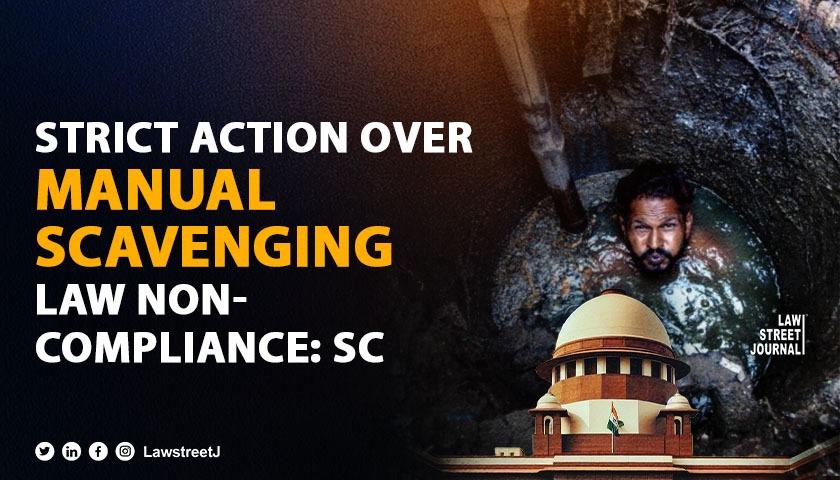New Delhi: The Supreme Court has delivered a significant order emphasizing its commitment to ensuring the implementation of the Employment of Manual Scavengers and Construction of Dry Latrines (Prohibition) Act, 1993, and the Prohibition of Employment as Manual Scavengers and Their Rehabilitation Act, 2013.
Supreme Court Demands Urgent Action on Manual Scavenging Law Enforcement
Justice Sudhanshu Dhulia and Justice Aravind Kumar made important observations regarding the non-compliance with statutory provisions and their societal impact.
The court observed that it “will go to any extent” to ensure compliance with its previous orders while hearing a Public Interest Litigation highlighting the continued non-implementation of these welfare legislations.
India’s Top Court Seeks Compliance Report on Manual Scavenging Prohibition Acts
Addressing the gravity of the situation, the court noted the lack of implementation of statutory bodies and survey requirements. “Most of the directions given in the order dated 20.10.2023 have not been complied with. In some cases, even the formation of statutory bodies, which the States are mandated to establish under the Acts, has not been done.”
Also Watch
The court highlighted the potential societal impact of such non-compliance, stating, “Considering technological and scientific advancements, it is now entirely possible to eradicate manual scavenging, unhygienic latrines, and the use of manual labor in sewer lines completely, yet little progress has been made in this field.”
The Additional Solicitor General, Ms. Aishwarya Bhati, suggested convening a meeting of stakeholders within two weeks to address these issues.
The court directed the Union of India to file a comprehensive affidavit detailing the extent of compliance, including state-wise breakdowns and reasons for non-compliance.
The matter is listed for the next hearing on January 29, 2025.
Case Reference: Dr. Balram Singh vs Union of India











